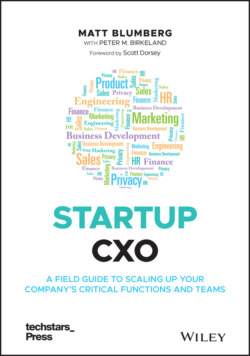Читать книгу Startup CXO - Matt Blumberg - Страница 36
Legal
ОглавлениеDon't be surprised as a startup CFO if all the legal issues end up on your desk. It's common and often there's really no one else other than the CEO who can handle legal issues. The primary things to be concerned about are: (1) effective management of outside counsel, including knowing when to use them; (2) building useful and reasonable template agreements, including a master services agreement with appropriate insertion orders and a mutual NDA; and (3) document management and storage process. If you don't have a legal background or related experience, it is worth spending a session or two with outside counsel educating you on HOW to manage a contract negotiation or approval, draft a series of good templates, walk you through each term and show what's OK to give on, and help you understand risk areas.
The area where you can save most money is by working closely with outside counsel during transactions, especially if the company has to cover the legal costs of the investors. Spending just a small amount of time looking at your outside counsel's specific hours may give you the chance to lower the bill. For example, if your counsel is stating that it took them 20 hours to file a Form D for the financing (which is a one‐pager and takes minutes to file), you will want an explanation.
The startup CFO also ends up being the lead negotiator along with the CEO on most of the early legal decisions. This makes it easy in some ways as you and the CEO can quickly do benefit/risk math, but keep in mind that as you scale and create in‐house counsel, you'll want to transfer that ability to them.
At some point during the company's scaling up, and depending on how many transactions and other legal touchpoints the company has on a monthly basis, you will want to hire an in‐house lawyer. The trick I used to figure out when we needed to hire someone was simple. For a three‐week period I came up with five to six categories of my function, one being legal, and assigned a category to each 15‐minute time block. After the three weeks I saw I was spending over 35% of my time on legal matters. This was not a good situation for me or the company, so we hired a lawyer. For your first legal hire, typically you want to hire someone you can transfer the day‐to‐day negotiation of customer and vendor agreements to and someone who can manage your outside counsel for IP matters like trademarks and patent filings. So, you really don't have to hire a full‐time general counsel early on. And you will usually keep the relationship for outside counsel around transactions.
